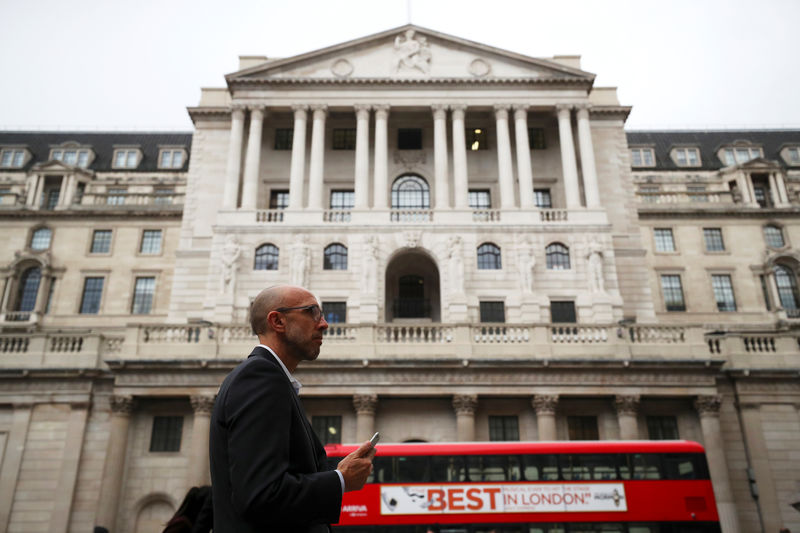Investing.com - The Bank of England left interest rates on hold at 0.75% on Thursday and raised its growth forecasts, in what was its first monetary policy meeting since the deadline for Brexit was delayed for six months.
The vote on the decision was unanimous, with all nine policymakers voting in favor of keeping rates on hold. The decision was widely expected with most economists forecasting that borrowing costs will remain on hold until it's clear whether and on what terms the U.K. will actually leave the European Union.
Last month, the deadline for Brexit was postponed until Oct. 31 after Prime Minister Theresa May failed to secure parliamentary backing for her withdrawal deal in time for the original March 29 departure date.
The BoE said it now expects the U.K. economy to grow by 1.5% this year, up from 1.2% that it forecast in February.
"GDP is expected to have grown by 0.5% in 2019 Q1, in part reflecting a larger-than-expected boost from companies in the United Kingdom and the European Union building stocks ahead of recent Brexit deadlines," the bank's rate statement said.
"That boost is expected to be temporary, however, and quarterly growth is expected to slow to around 0.2% in Q2. Smoothing through those developments, the underlying pace of GDP growth appears to be slightly stronger than previously anticipated, but marginally below potential."
Policymakers noted that Brexit uncertainties are having a "particularly pronounced impact" on business investment, which has been falling for a year.
The BoE reiterated its view that further tightening of monetary policy in the future would be appropriate.
"The Committee continues to judge that ... an ongoing tightening of monetary policy over the forecast period, at a gradual pace and to a limited extent, would be appropriate," the statement said.
But the bank noted that uncertainty over Brexit continued to cloud the outlook for monetary policy decision making.
"The economic outlook will continue to depend significantly on the nature and timing of EU withdrawal, in particular: the new trading arrangements between the European Union and the United Kingdom; whether the transition to them is abrupt or smooth; and how households, businesses and financial markets respond," the statement said.
